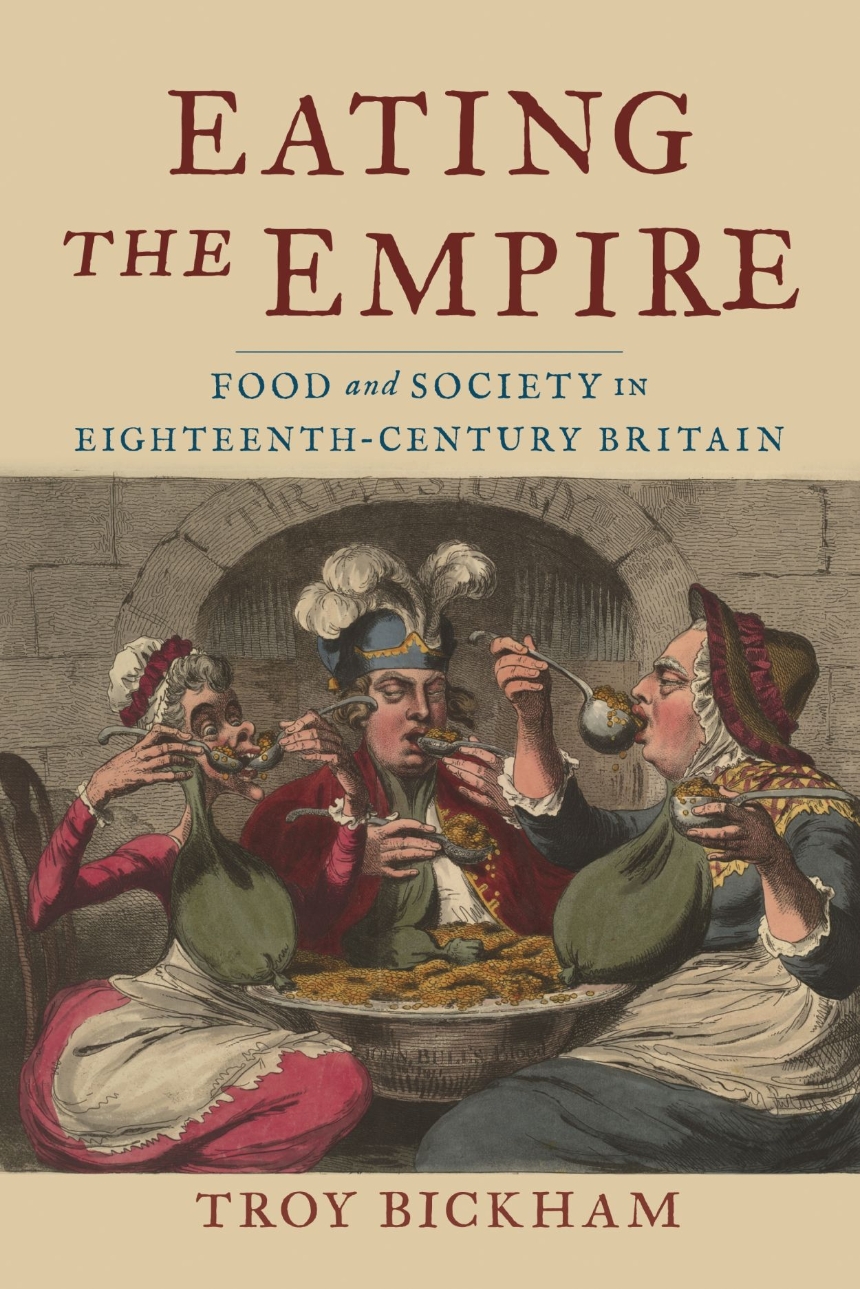9781789142075
9781789142457
When students gathered in a London coffeehouse and smoked tobacco; when Yorkshire women sipped sugar-infused tea; or when a Glasgow family ate a bowl of Indian curry, were they aware of the mechanisms of imperial rule and trade that made such goods readily available? In Eating the Empire, Troy Bickham unfolds the extraordinary role that food played in shaping Britain during the long eighteenth century (circa 1660–1837), when such foreign goods as coffee, tea, and sugar went from rare luxuries to some of the most ubiquitous commodities in Britain—reaching even the poorest and remotest of households. Bickham reveals how trade in the empire’s edibles underpinned the emerging consumer economy, fomenting the rise of modern retailing, visual advertising, and consumer credit, and, via taxes, financed the military and civil bureaucracy that secured, governed, and spread the British Empire.
Reviews
Table of Contents
Introduction
Part I: Encountering, Acquiring and Peddling
1 The Empire’s Bounty
2 The New British Consumer
3 Advertising and Imperialism
Part II: Defining, Reproducing and Debating
4 Defining a British Cuisine
5 An Edible Map of Mankind
6 The Politics of Food
Conclusion
References
Selected Sources
Acknowledgements
Photo Acknowledgements
Index
Part I: Encountering, Acquiring and Peddling
1 The Empire’s Bounty
2 The New British Consumer
3 Advertising and Imperialism
Part II: Defining, Reproducing and Debating
4 Defining a British Cuisine
5 An Edible Map of Mankind
6 The Politics of Food
Conclusion
References
Selected Sources
Acknowledgements
Photo Acknowledgements
Index

